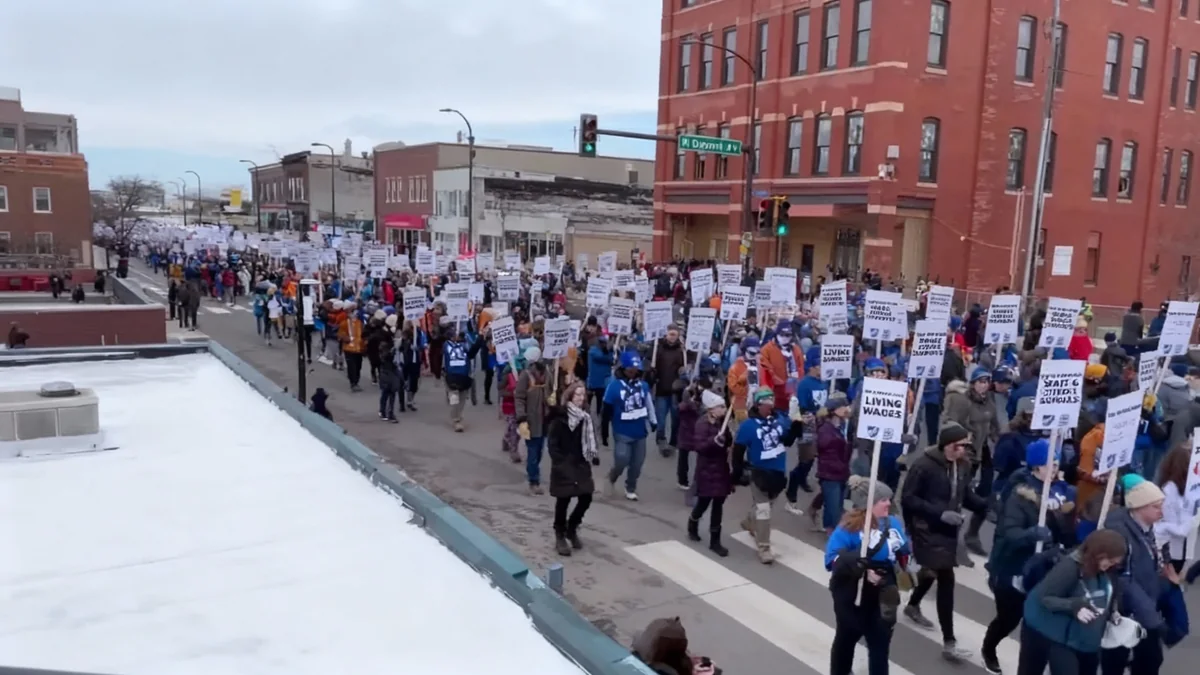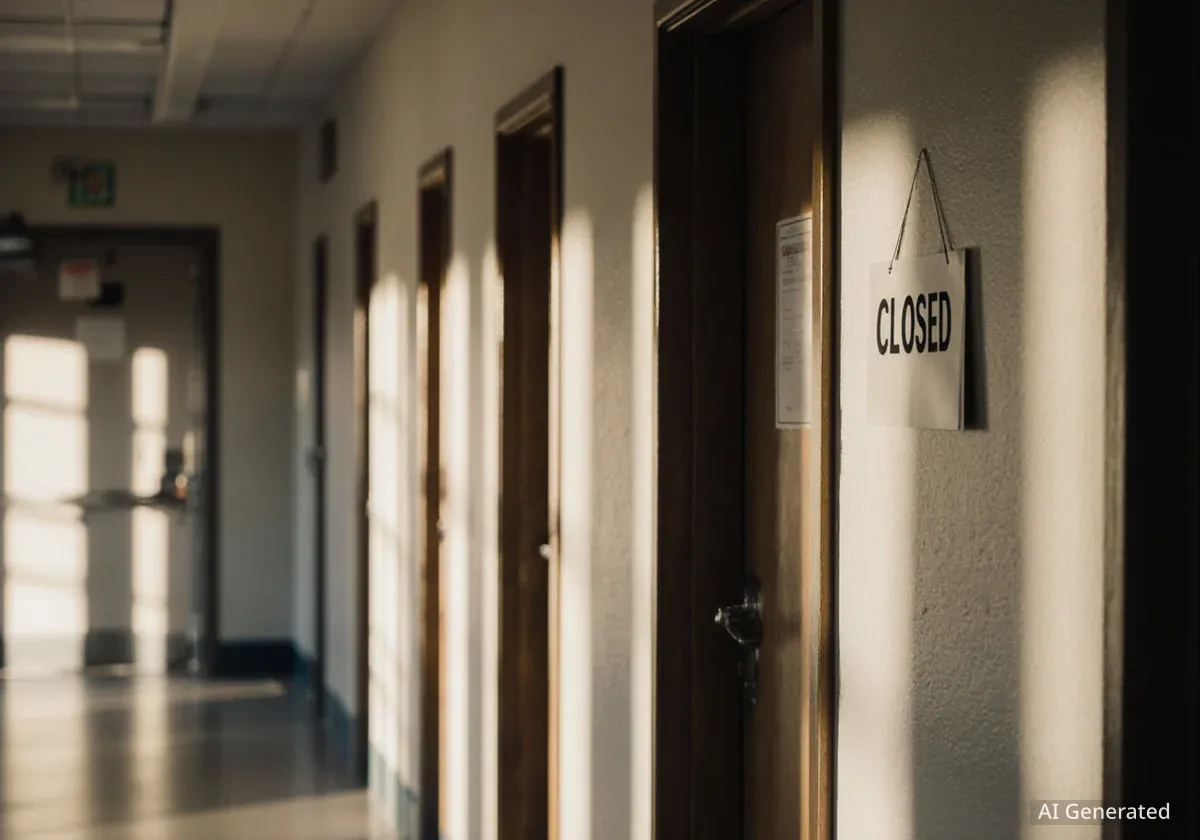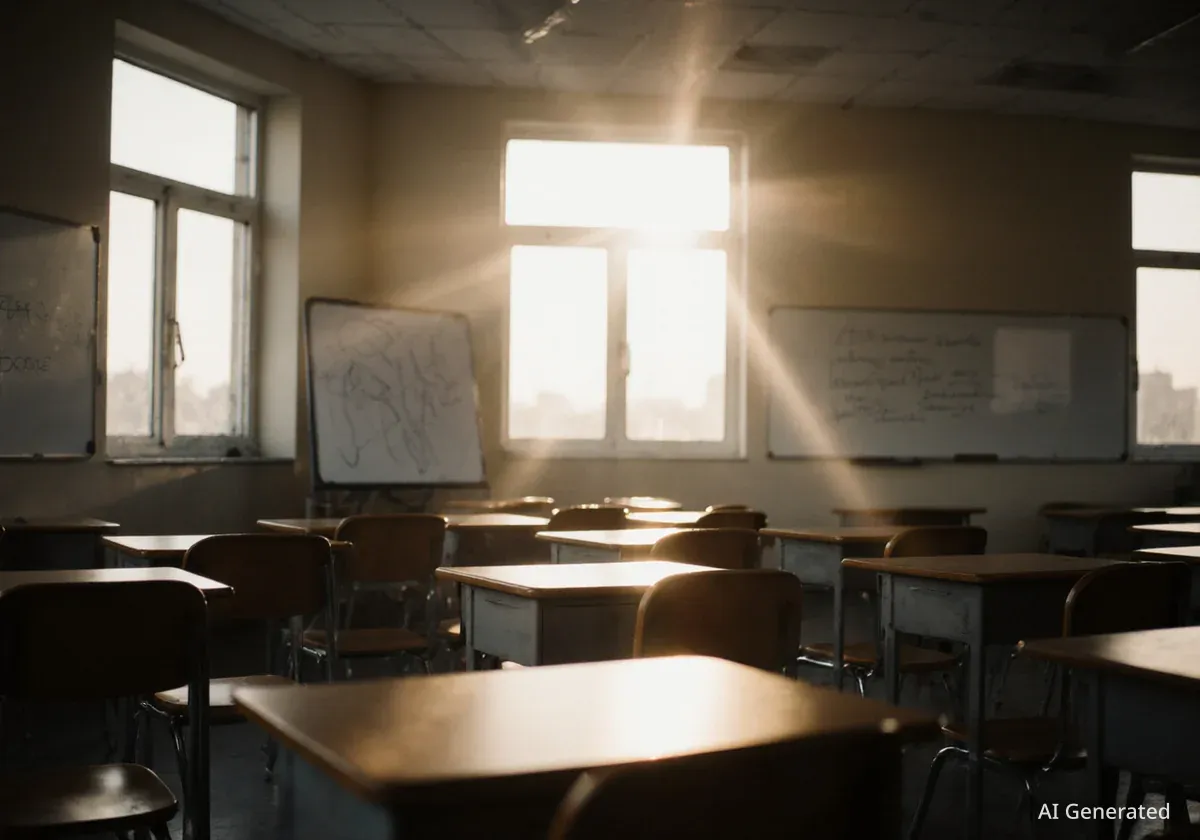Educators in Minneapolis have overwhelmingly voted to authorize a strike, escalating a months-long contract dispute with Minneapolis Public Schools. The vote, confirmed Monday evening, gives the Minneapolis Federation of Educators (MFE) the authority to call a walkout if negotiations fail to produce a new agreement.
The primary points of contention remain higher wages for teachers and support staff, as well as demands for smaller class sizes. While the union asserts the district has the funds to meet these needs, school officials point to a significant budget deficit as a major obstacle to a resolution.
Key Takeaways
- Minneapolis teachers voted to authorize a potential strike after months of stalled contract negotiations.
- The union is demanding higher wages and smaller class sizes.
- Minneapolis Public Schools reports a $75 million budget shortfall, complicating the talks.
- A strike is not immediate; the union must provide a 10-day notice before any walkout.
- Both sides are scheduled to return to the negotiating table on Thursday.
Authorization Vote Increases Pressure
After three days of voting that concluded on Monday, members of the Minneapolis Federation of Educators gave their leadership the green light to call a strike. This move does not guarantee a work stoppage but serves as a significant point of leverage in the ongoing negotiations with the school district.
Marcia Howard, the teacher chapter president for the union, expressed the sentiment of many educators in a statement released Monday night.
"No one wants to strike, but district leaders have left us no choice. For nearly seven months, we’ve waited for serious solutions to the real problems facing our students and schools. Instead, we get delays and dismissal."
The union plans to hold a rally outside the district headquarters on Tuesday afternoon to further highlight their position and build public support. According to union rules, a 10-day notice must be given to the district before any strike action can begin, leaving a window for a potential settlement.
Conflicting Financial Pictures at the Forefront
The core of the disagreement centers on the district's financial capacity. School officials have repeatedly stated that they are facing a substantial budget deficit, making it difficult to meet the union's demands.
$75 Million Shortfall
Minneapolis Public Schools officials state they are grappling with a $75 million budget shortfall for the current school year. They attribute this gap to declining student enrollment and the expiration of federal pandemic-era funding that had temporarily boosted their budget.
In a formal statement, the district emphasized a cooperative approach, despite the financial constraints.
"Minneapolis Public Schools (MPS) and the Minneapolis Federation of Educators (MFE) are aligned on values, and we share the same primary goals for our contracts as we support our students and staff," the statement read. It continued by noting a commitment to reaching an agreement that "works within available resources and prepares the district to navigate anticipated revenue reductions in the coming years."
Union Questions District's Priorities
The union, however, challenges the district's portrayal of its financial situation. Lead negotiator Lizz Done suggested that the projected deficit should be viewed with skepticism.
"We take the deficit with a bit of a grain of salt," Done said in an interview last week. "We would expect for some variation, obviously, between projections and outcomes."
Union leaders argue that the issue is not a lack of funds, but a matter of how those funds are prioritized. They have pointed to a more than 30 percent increase in salaries for top district administrators and what they describe as excessive spending on outside contracts as evidence that money is available for teacher salaries and classroom improvements.
Path Forward Remains Uncertain
With the strike authorization now in place, all eyes are on the next mediation session scheduled for this Thursday. Both the union and the district have publicly stated their preference to avoid a strike, which would disrupt the education of thousands of students across the city.
Focus on a Settlement
Despite the authorization vote, the immediate goal for both parties is to find common ground at the bargaining table. The union has made it clear that a strike is a last resort.
"Our goal is to settle our contract," Lizz Done affirmed. "We will do everything it takes. If we need to be in mediation all night, we're going to be there. Our goal is not to go on strike. Our goal is to settle the best contract for our students and our staff."
The coming days will be critical in determining whether Minneapolis can avert a teacher walkout. The outcome of Thursday's meeting will likely signal whether the two sides are moving closer to an agreement or further down the path toward a strike that would impact families, students, and educators throughout the city.





